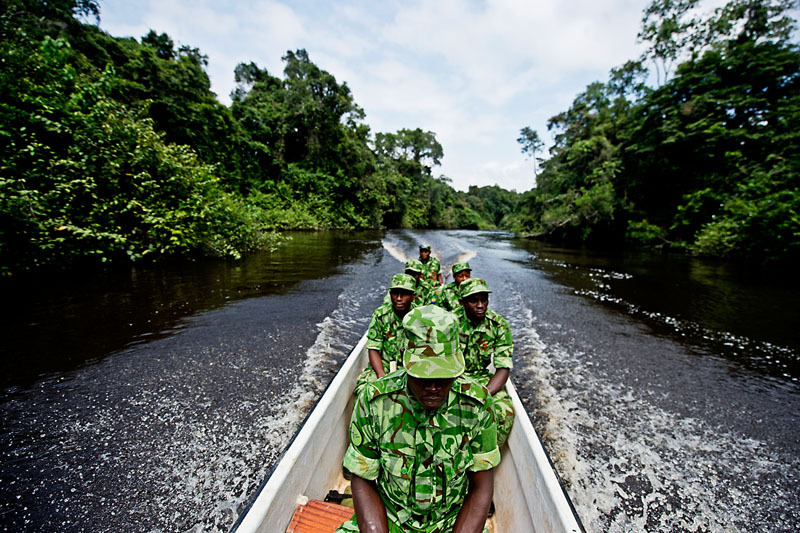Gland – At least 107 rangers died in the line of duty over the past twelve months and yet a new survey finds many rangers across the world are still not covered by any health, long-term disability or life insurance schemes.
According to the figures released by the International Ranger Federation (IRF) to mark World Ranger Day today, 42 per cent of the rangers who died in the past year were killed by poachers and 17 per cent by wild animals. More than 1,000 have now died in the past decade.
However, despite the evident risks rangers face every day, the first ever global ranger insurance report surveying 40 countries across the world found that 35 per cent of government rangers have no life insurance, while 20 per cent receive no health insurance and 45 per cent lack long-term disability cover.
“On World Ranger Day, we stand with all of our remarkably brave men and women, and especially honour those who paid the ultimate price while striving to protect the world’s remaining wildlife and wild places for the benefit of us all,” said Sean Willmore, President of the IRF and Director of the Thin Green Line Foundation. “Being a ranger will always be risky, but it is shocking that so many are killed in the line of duty and shameful that so many of their families do not even receive basic compensation.”
Commissioned by WWF and the Ranger Federation of Asia (RFA), the findings of the report highlight the lack of basic insurance cover across Asia and Africa, where almost 90 per cent of ranger deaths were recorded over the last year. Half the government rangers in the countries surveyed on these continents have no life insurance, while more than half have no long-term disability cover.
The report also found that 38 per cent of the countries, including half those in Africa and Asia, employed rangers on temporary contracts without providing any insurance coverage.
A single perception question within the survey showed that in the majority of countries, respondents believed that insurance coverage for rangers was less than that available to those with similar jobs, such as police, military, coastguards and fire fighters.
“Rangers are on the conservation frontline, but they seem to be at the back of the line when it comes to basic life, health and disability insurance,” said Elisabeth McLellan, WWF Head, Wildlife Crime Initiative. “Rangers deserve to know that their families will not be left destitute if they are killed or seriously injured on patrol: we owe it to them to fight for basic insurance cover for all rangers.”
Supported by the IRF, Global Tiger Forum and Global Wildlife Conservation, the report calls on governments and NGOs to take urgent steps to improve conditions for rangers. In particular, NGOs should conduct additional in-depth research, lobby governments for basic insurance cover, build the capacity of ranger associations and work with the private insurance sector to develop new schemes to cover rangers.
“Governments must also respond swiftly to the report’s worrying findings by reviewing the provision of insurance to their rangers and ensuring temporary workers have adequate cover since they face the same dangers,” said Rohit Singh, President of RFA. “But governments also have to provide rangers with the best available tools and training to do their job as safely and effectively as possible. If they did, we would not be mourning so many rangers every year.”
Two WWF perception surveys released earlier this year also highlighted just how dangerous it is to be a ranger in Africa and Asia, with 73 per cent of the rangers surveyed across the two continents saying they had experienced a life-threatening situation on duty in interactions with wildlife or poachers. Worryingly, 66 per cent said they do not have the right equipment to ensure their safety and 45 per cent believe they have not had adequate training.
- Home
- Our Work
- About Us
- Resources
- Partnerships
- Policies
- Policies
- WWF Network Terms And Conditions
- WWF Non-Network Terms and Conditions
- WWF Fraud and Corruption Prevention and Investigation Policy
- WWFS Commitment to Integrity and Good Conduct Policy
- WWF Environmental and Social Safeguards Framework (ESSF)
- WWF-Singapore Procurement Terms And Conditions
- WWF-Singapore Personal Data Protection Policy
- WWF-Singapore Whistleblowing Policy














